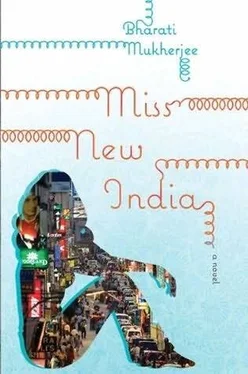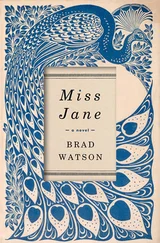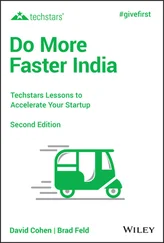"Well, I don't think I need to worry about you, Miss Bose. You're steps ahead of everyone. May I call you, now that you have your own phone?"
On the drive back, Mr. GG told her what he'd been reading on the BBC website when she interrupted him at Barista. A plot to blow up Heathrow had been disrupted. She had to ask, "What is a heath row?"
"An airport," he said. She knew some names, like Netaji Subhas Bose in Kolkata and Indira Gandhi in New Delhi, and there was Sahar in Mumbai, but she'd never been on an airplane or even in an airport.
"London," he said. "People who travel a lot name the airport, not the city."
"What does that have to do with us?" she asked.
"Butterfly effect," he answered. He launched into a long explanation of how anything that happens anywhere in the world affects Bangalore. She didn't follow his theory and stopped listening to his actual words, cocooning herself instead in the pleasure of his desire for her. He kept reaching for her hand. She wished Kew Gardens was far, very far. She wanted him to keep talking, keep driving, keep lusting. She wanted to love even more than to be loved.
Respecting Minnie's house rules, Mr. GG stopped the car two blocks from Bagehot House. She let herself out the passenger door and walked around to the driver's side. He stayed behind the wheel but didn't drive off. He said, "I want to see you again."
She could tell he wanted to say more, and she wanted him to say more, so she lingered on the sidewalk, tracing invisible circles with a fingertip on his door. Mr. GG didn't bring out the sweet, clean wine-and-moonlight flirtiness that Moni Lahiri had, just a couple of hours before. She couldn't make even make-believe love to Moni in Moni's apartment. Did he live in a rented apartment, or did he own a house? He was a magician, who took Anjali and Angie, waved his wand, and made both disappear, then created an ethereal Miss Two Scoops, the stuff of popular dreams. He Photoshopped her: that was it. But Mr. GG saw through her, and into her. Her attraction to Mr. GG had a rawness and authority that thrilled her.
"Yes?"
He had expected confirmation, not a question. The engine started up. "Take care," he said. The car eased into traffic.
It was three o'clock in the afternoon, a normally quiet time. A light mist was falling, Bangalore's version of the monsoon. Kew Gardens Corner and Bhajot Lane were unusually crowded. Pedestrians-not strollers, but young men running with purpose-had spilled over the sidewalks and into the roadway, throwing traffic into a honking chaos. At three o'clock most houses were usually shuttered and many of the smaller shops were closed.
I'm a woman now, she said to herself. I'm quite a woman. I'm hot, according to Tookie. Secretive and oh so mysterious, according to Husseina. Sherbet-cool, sherbet-refreshing, according to Moni. And funny and fascinating, if I'm reading Mr. GG correctly. All in all, it had been quite a day, and it was still the middle of the afternoon.
The promised day had arrived! Shortly after daybreak, Anjali and eleven other students piled out of the CCI minivan for the first day of the two-week intensive course, itself a preparation for a new life as a salaried, independent career woman. She was glad, in a way, that she had procrastinated about getting in touch with Peter Champion's contacts. Big carp in a small pond is a minnow in a lake. She wasn't the frightened country bumpkin she had been in her first few weeks in Bangalore. She felt cocky as she watched the other eight women and three men take hesitant leaps out of the minivan. They clustered around the newly installed elevator, which could accommodate only four at a time. She chose to walk up the three flights to the door of CCI and Desai Data Systems, the first arrival, and she was rewarded with a special smile from Parvati Banerji, who had stationed herself on the third-floor landing to welcome her students.
The floor plan of DDS and Usha Desai's home office, in which Anjali had been interviewed, were identical, except that all three bedrooms had been turned into classrooms furnished with desks and chairs and equipped with computers, whiteboards, and floor-to-ceiling panels that depicted American life.
Parvati began lessons by dashing off a list of words on the whiteboard: please, deliver, development, circuitry, executive, address, growth, management, garbage, opportunity, hearth, addition, thought. Words that customer-support-service employees would need and would use on every work shift but would very likely mangle.
"Our goal for the intensive sessions," she announced, "is accent enhancement. The regular program offers accent neutralization, not enhancement."
Anjali saw the trembling fingers of the woman at the desk to her left write study gole = hanssment in her notebook. She peered at the lined notebook of the male student to her right. He was sketching her profile, and he was pretty good at it.
A woman's voice from behind Anjali interrupted the instructor. "Ma'am, what is enhancement meaning exactly?"
The instructor was ready for that question. "The U.S. companies that come to us want you to sound acceptably American. That doesn't mean you have to imitate American television accents-it just means they expect you to communicate without any complications. We'll work this morning on softening consonants and crispening vowels."
She had each of her twelve students pronounce the words she had listed on the whiteboard. Please came out as "pliss"; garbage and manage as "garbayje" and "manayje." All twelve had problems with the buried v: "de-well-op," "day-li-wer." Ms. Banerji smiled through the difficulties. "A small problem of muscle memory from your mother tongue," she explained. "Fortunately we have tailor-made solutions for every MTI problem in this room." She must have caught Anjali's blank look, for she quickly added, "Mother-tongue influence problems." She assured her students that after the two-week course, they would be fluent in the language of acronyms. And politics. And sports. And popular culture. Every problem has a solution.
Even problems in personal life? Anjali wondered. Could the teacher include a lesson in optimism enhancement?
Parvati's lesson plan was more formal than Peter's. She dictated which syllable to stress. She instructed the students to press the upper teeth down on the lower lip so that a crisp v didn't dissolve into a whooshy w. She drilled the trainees hard, but not even Anjali got the th in growth, hearth, and thought. So much easier to catch the staked fence of a t and an h approaching and settle on a plump, cozy, softened d.
The next exercise called for each student to recite a poem from a reader that Parvati and the absent Ms. Desai had put together. Twelve trainees, twelve poems. Anjali was assigned "I Heard a Fly Buzz." This lady poet was no Edgar Allan Poe. How could anyone be inspired by flies? Flies deserved swatters, not rhymes. Flies meant that something dead, sweet, or fecal was nearby. Anjali guessed she'd been deliberately selected for Miss Emily's fly poem because f was hard for Bengalis to pronounce. She remembered Peter's admonition: "Foggiest, Angie, not p'oggiest." She owed it to him to get the f sound right in this Bangalore classroom. And she did.
At the lunch break, two students quit. "Shattering. I've lost all my confidence," Ms. Vasudev complained. She intended to ask for her money back. Mr. Shah did not slink away during the break as Ms. Vasudev had. He waited for the instructor to resume classes so he could confront her before storming out. "This is humiliating," he berated Ms. Banerji. "I am a citizen of India. I don't give a damn that Mr. Corporate America doesn't like my accent!" To which Parvati rejoined, "Losing two out of twelve isn't bad. That leaves more attention for everyone else. In fact, two is just the beginning." She had them recite "Quitters never win, and winners never quit," and kept them at it until "vinners" and "k vitters" were wrung from their tongues.
Читать дальше












